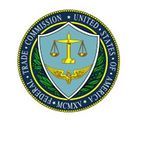Federal Trade Commission: Difference between revisions
| Line 36: | Line 36: | ||
==The Bureau of Competition== | ==The Bureau of Competition== | ||
The primary role of the Bureau of Competition is to promote competition within the business sector for the benefit and interest of consumers. The Bureau examines company mergers and acquisitions to make sure that the transaction is fair and it will not result to price increase, limited choices, lesser innovation, reduce competition and monopoly.<ref>[http://www.ftc.gov/bc/index.shtml The Bureau of competition]</ref> | The primary role of the Bureau of Competition is to promote competition within the business sector for the benefit and interest of consumers. The Bureau examines company mergers and acquisitions to make sure that the transaction is fair and it will not result to price increase, limited choices, lesser innovation, reduce competition and monopoly.<ref>[http://www.ftc.gov/bc/index.shtml The Bureau of competition]</ref> | ||
==The Bureau of Consumer Protection== | |||
The Bureau of Consumer Protection's main objective is safeguard the interests of consumers from deceitful and unfair business practices. The bureau increases consumer confidence by enforcing federal laws, provide information to help consumers identify fraud, encourage consumers to file complaint regarding illegal business activities.<ref>[http://www.ftc.gov/bcp/index.shtml The Bureau of Consumer Protection]</ref> | |||
==The Bureau of Economics== | |||
The Bureau of Economics evaluates the economic impacts of government regulations and provides policy recommendations to the Legislative and the Executive Branch of the government regarding competition and consumer protection. It is also expected to analyze and support the any antitrust and consumer protection investigation as well as the creation of rules to be implemented by the commission.<ref>[http://www.ftc.gov/be/index.shtml The Bureau of Economics]</ref> | |||
==FTC Commissioners== | |||
The current Commissioners of FTC include:<ref>[http://www.ftc.gov/commissioners/index.shtml FTC Commissioners]</ref> | |||
* '''Jon Leibowitz''', Chairman | |||
* '''William E. Kovacic''' | |||
* '''J. Thomas Rosch''' | |||
* '''Edith Ramirez''' | |||
* '''Julie Brill''' | |||
==References== | ==References== | ||
Revision as of 00:28, 5 October 2011
 | |
| Type: | Government Agency |
| Industry: | Legal/Consumer Protection |
| Founded: | 1914 |
| Headquarters: | 600 Pennsylvania Avenue, N.W. |
| Country: | USA |
| Website: | www.ftc.gov |
| Facebook: | Federal Tade Commission |
| LinkedIn: | Federal Trade Commission |
| Twitter: | |
| Key People | |
| Jon Leibowitz, Chairman | |
The Federal Trade Commission (FTC) is a federal agency dedicated in protecting the rights of consumers and implements regulations against anti-competitive business practices. FTC has the authority to implement trade laws and regulations and to investigate business entities reported by consumers and are suspected to be conducting unfair trade practices. The agency's mission is carried out by Bureaus of Consumer Protection, Competition and Economics with assistance from the Office of General Counsel and seven regional offices.[1]
History
FTC was created after the enactment of the Federal Trade Commission Act which was signed by former United States President Woodrow Wilson on September 26, 1914. FTC started its operations as an independent federal agency on March 16, 1915. The agency assumed the responsibilities of the Department of Commerce Bureau of Corporation, which was created during the administration of former President Theodore Roosevelt in 1903. The first commissioners of the FTC were Joseph Davies, Edward Hurley, and William Harris, and Progressives Will Parry and George Rublee. Davies was elected Chairman of the FTC.[2] [3]
Powers of the FTC
The FTC has the authority to gather information, publish reports and conduct investigation and file administrative and antitrust cases against companies practicing unfair competitive business strategies under Section 5 of the Federal Trade Commission Act. The Commission can also implement the the Sherman Act which prohibits monopoly of businesses, the Clayton Act which prohibits mergers and acquisitions that will reduce competition leading to monopoly as well as other trade regulations. It is also authorize to enforce international antitrust cases International Antitrust Enforcement Assistance Act. [4] [5]
The General Counsel
The General Counsel serves as the chief legal counsel and adviser of FTC. Its primary role is to represent the Commission= and its operating bureaus and other offices in court proceedings and provide legal advise.[6]
The Bureau of Competition
The primary role of the Bureau of Competition is to promote competition within the business sector for the benefit and interest of consumers. The Bureau examines company mergers and acquisitions to make sure that the transaction is fair and it will not result to price increase, limited choices, lesser innovation, reduce competition and monopoly.[7]
The Bureau of Consumer Protection
The Bureau of Consumer Protection's main objective is safeguard the interests of consumers from deceitful and unfair business practices. The bureau increases consumer confidence by enforcing federal laws, provide information to help consumers identify fraud, encourage consumers to file complaint regarding illegal business activities.[8]
The Bureau of Economics
The Bureau of Economics evaluates the economic impacts of government regulations and provides policy recommendations to the Legislative and the Executive Branch of the government regarding competition and consumer protection. It is also expected to analyze and support the any antitrust and consumer protection investigation as well as the creation of rules to be implemented by the commission.[9]
FTC Commissioners
The current Commissioners of FTC include:[10]
- Jon Leibowitz, Chairman
- William E. Kovacic
- J. Thomas Rosch
- Edith Ramirez
- Julie Brill
References
- ↑ About the Federal Trade Commission
- ↑ A Brief History of the Federal Trade Commission
- ↑ Meeting of Federal Trade Commission, March 16, 1915
- ↑ The Antitrust Laws
- ↑ A Brief Overview of the Federal Trade Commissions Investigative and Law Enforcement Authority
- ↑ Office of the General Counsel
- ↑ The Bureau of competition
- ↑ The Bureau of Consumer Protection
- ↑ The Bureau of Economics
- ↑ FTC Commissioners

